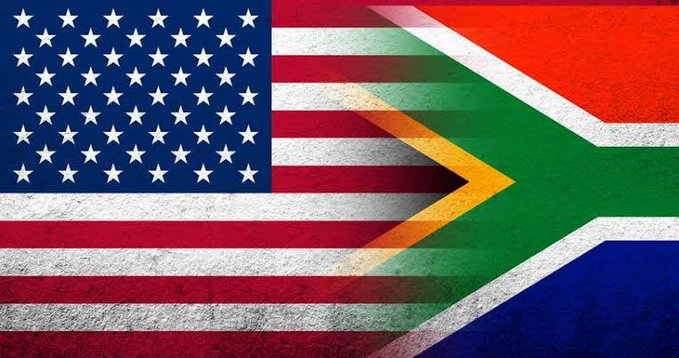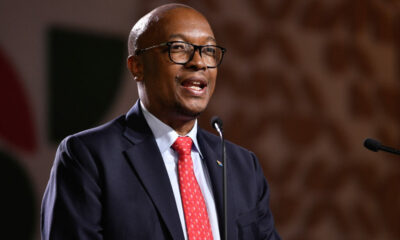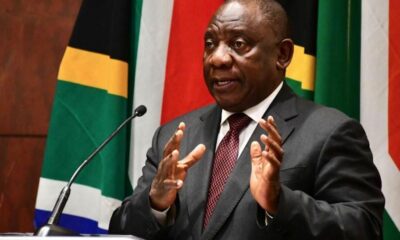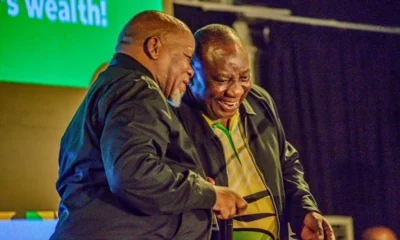Business
Under Pressure: Ramaphosa Talks Tariffs, Sanctions and South Africa’s Export Future

Facing the Fire: Ramaphosa Responds to US Tariff Threats
President Cyril Ramaphosa isn’t pretending everything is fine. With just days left before possible 30% US tariffs hit South African goods on August 1, the stakes couldn’t be higher. From car parts to citrus fruits, the lifeline of South Africa’s export economy is under serious threat.
But according to Ramaphosa, the door to diplomacy remains wide open.
Speaking during a visit to BMW Group South Africa’s plant in Tshwane, the president struck a hopeful tone about ongoing talks with Washington, even as a controversial bill in the US moves forward that could put sanctions on ANC leaders.
US Bill Raises Eyebrows and Tensions
At the centre of the storm is a bill recently approved by the US House Foreign Affairs Committee. It calls for a full review of US-South Africa relations and seeks to identify government officials and ANC leaders who could be subject to US sanctions.
The bill is a direct response to Pretoria’s increasingly public alignment with BRICS partners, particularly China and Russia and its vocal position on the war in Gaza.
Ramaphosa, visibly cautious, said he was “unsure” why the bill was introduced, but reiterated that diplomatic discussions are ongoing.
“We’ve got good diplomatic relations with the United States and we want to enrich them,” he told reporters. “We are very positive that the outcomes of our engagement will be comprehensive.”
Reality Bites: Local Exporters Already Feeling the Heat
While diplomacy carries on, South African producers are feeling the pressure. The threat of blanket tariffs on US-bound exports comes at a time when the local economy is already battling load shedding, high unemployment and slowing growth.
The US is one of South Africa’s most important trade partners, especially for high-value products like vehicles, citrus, wine, metals and minerals. A sudden spike in tariffs would price South African goods out of the American market—and hit jobs hard.
Ramaphosa admitted that time is running out. “Time, obviously, is of the essence,” he said. “We are exchanging a whole lot of ideas and proposals and I’m hoping those negotiations will bear fruit in the coming days.”
Plan B: AfCFTA and New Markets on the Radar
Still, the president isn’t putting all his eggs in the Washington basket. He’s making it clear that South Africa is actively exploring other trade avenues.
His key alternative? The African Continental Free Trade Area (AfCFTA). He called it “very progressive” and “a positive, tariff-free opportunity” for local exporters.
Ramaphosa also signalled a broader global search for markets, hinting at growing ties with Asia, the Middle East, and Latin America.
“As people see us moving from country to country, hopping on and off planes, we are searching and looking for markets for our products so that we can employ more people and grow our economy,” he said.
Why It All Matters
The looming tariffs and the US bill aren’t just about trade, they’re about geopolitical alignment and how South Africa positions itself in a rapidly shifting world. Pretoria’s strong stance on Gaza, support for Russia’s inclusion in global forums, and trade moves with BRICS have raised eyebrows in Washington. And now, it’s all coming to a head.
Public sentiment? Divided.
On X (formerly Twitter), one user posted: “Ramaphosa must choose a side. You can’t bash the US and expect trade to flow freely.”
Another said: “We need to stop being dependent on the US. Build Africa. Build BRICS.”
A Defining Test for Ramaphosa
For President Ramaphosa, this is more than a diplomatic dilemma. It’s a test of leadership in the global economic arena. If he can secure a deal that preserves trade with the US and accelerate export diversification, he might turn this crisis into a strategic win.
But if talks fail, and tariffs kick in, the consequences will be felt across factories, farms and freight depots nationwide.
The next few days may well determine not just the fate of South African exports, but its place in a fast-changing world.
{Source: Engineering News}
Follow Joburg ETC on Facebook, Twitter , TikTok and Instagram
For more News in Johannesburg, visit joburgetc.com



























